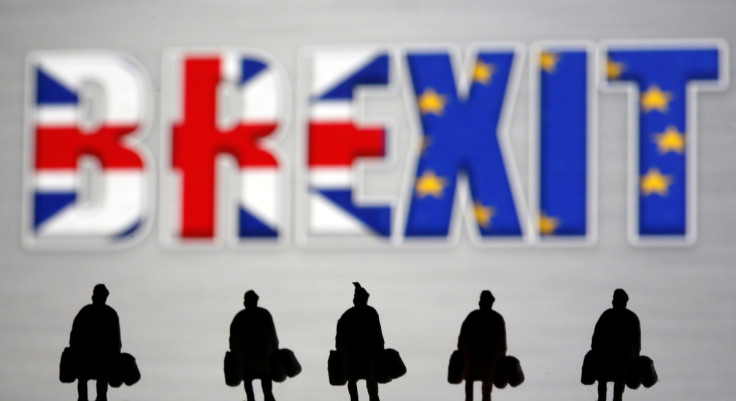Explainer-How Britain is exploiting Brexit to reform finance?
Britain proposed over 30 reforms on Friday to bolster the City of London's role as a global financial centre, now outside the European Union and facing competition from Amsterdam, Paris and Frankfurt, as well as New York and Singapore.

Britain proposed over 30 reforms on Friday to bolster the City of London's role as a global financial centre, now outside the European Union and facing competition from Amsterdam, Paris and Frankfurt, as well as New York and Singapore.
IS THIS BIG BANG 2.0?
Not quite, but it marks a swing in the regulatory pendulum from years of increasing bank capital requirements and tightening consumer protections, to thinking what tweaks are needed to make rules work better for Britain after Brexit.
Initially trailed as a Big Bang 2.0 on the same scale as far-reaching 1980s reforms of share trading, the changes have now been dubbed the "Edinburgh Reforms" after the city where they were formally unveiled by finance minister Jeremy Hunt.
The government has toned down its rhetoric, insisting there will be no 'race to the bottom', big departure from international norms, or scrapping investor protections, but that regulators should aid the financial sector's international competitiveness.
Hunt said it would be wrong call the reforms a Big Bang given the need to avoid 'unlearning' lessons from the 2008 global financial crisis and underscored the independence of regulators.
"The City does not want to see deregulation. Today's announcements are an indication of an evolution, rather than revolution," said Alasdair Haynes, CEO of Aquis stock exchange.
WHAT'S RING-FENCING ALL ABOUT?
Britain has already announced an easing of capital rules for insurers and is now turning to banks.
Since January 2019 banks have had to ring-fence their deposit-taking arms with a cushion of capital to insulate them against blow-ups in their riskier activities.
Banks have complained the rules are too strict and hinder smaller ones from competing with bigger lenders in the mortgage market. The government said it will follow recommendations from a review it commissioned and amend the rules.
The government will consult mid-2023 on exempting banks without major investment banking activities from the rules, and on raising the deposits threshold which triggers compliance with ringfencing rules, from 25 billion pounds to 35 billion pounds.
ARE BANKERS NOW OFF THE HOOK?
It's not back to pre-financial crisis 'lite-touch'.
The government had already announced it will scrap an EU cap on banker bonuses, though other curbs on how bonuses are paid are expected to remain.
Britain introduced rules in 2016 to make senior bankers, adding senior officials at insurers in 2018, directly accountable for the decisions they take after few individuals were punished for misconduct that led to the global financial crisis when taxpayers bailed out lenders.
It was feared as a tool to publicly shame bankers by putting "heads on sticks", but so far there have been few investigations or enforcement cases. Bankers say regulators also take too long to give the green light to senior appointments.
The government will review this senior managers and certification regime in the first quarter of 2023, with no indication yet of the scale of any changes.
WHAT ABOUT MARKETS?
There will be a raft of reviews as London seeks to catch up with New York in listings.
Topics under review include the rules on short-selling, or bets that the price of stock will fall. The government proposes to scrap outright an EU-era "PRIIPs" explanatory document given to investors, replacing it with an alternative framework.
There will be an industry taskforce to examine the case for halving the time it takes to settle a stock trade from two working days to one, a move already planned in the United States.
Rules on prospectuses that companies give to investors when they list on an exchange will be overhauled, along with a reform of rules for securitisation.
The government commits to putting in place rules for a "consolidated tape" by 2024, to provide market prices for investors to check on best deals across trading platforms.
The government will act on recommendations from a review into improving how listed companies tap investors for fresh funds.
There will be a review of EU rules which require brokers to itemise fees for stock picking research and executing stock orders, known as 'unbundling' - a rule the EU has already partially reversed. There will also be trials for a wholesale market venue that operates on an intermittent basis to improve companies' access to capital before they publicly list.
AND GREEN FINANCE?
The government will consult on bringing environmental, social and governance (ESG) company ratings providers under the regulatory net.
The ratings are widely used by investors for picking companies which tout 'green' credentials, but they are not regulated. The Financial Conduct Authority said it would encourage regulation focused on transparency, good governance, management of conflicts of interest, and robust systems and controls.
WILL THERE BE A BRITCOIN?
Prime Minister Rishi Sunak, when he was finance minister, called for a "Britcoin" or digital pound for faster payments.
The government will consult with the Bank of England in coming weeks on a digital pound for retail use.
Copyright Thomson Reuters. All rights reserved.





















